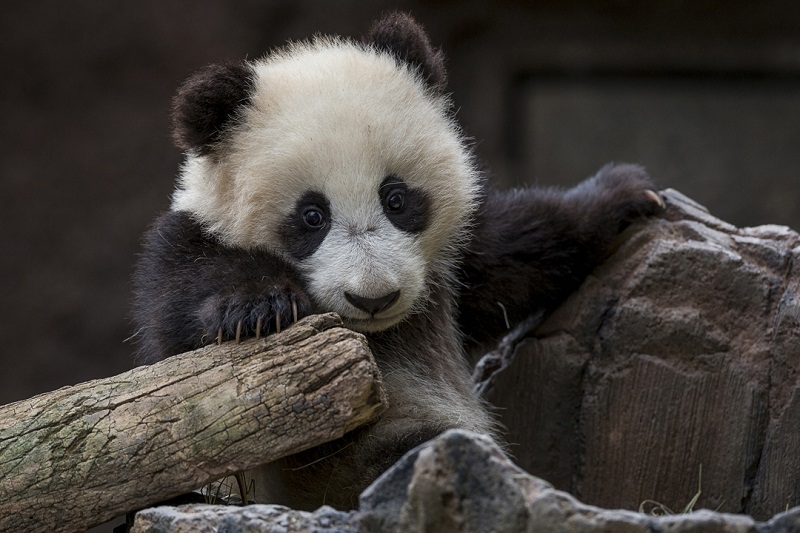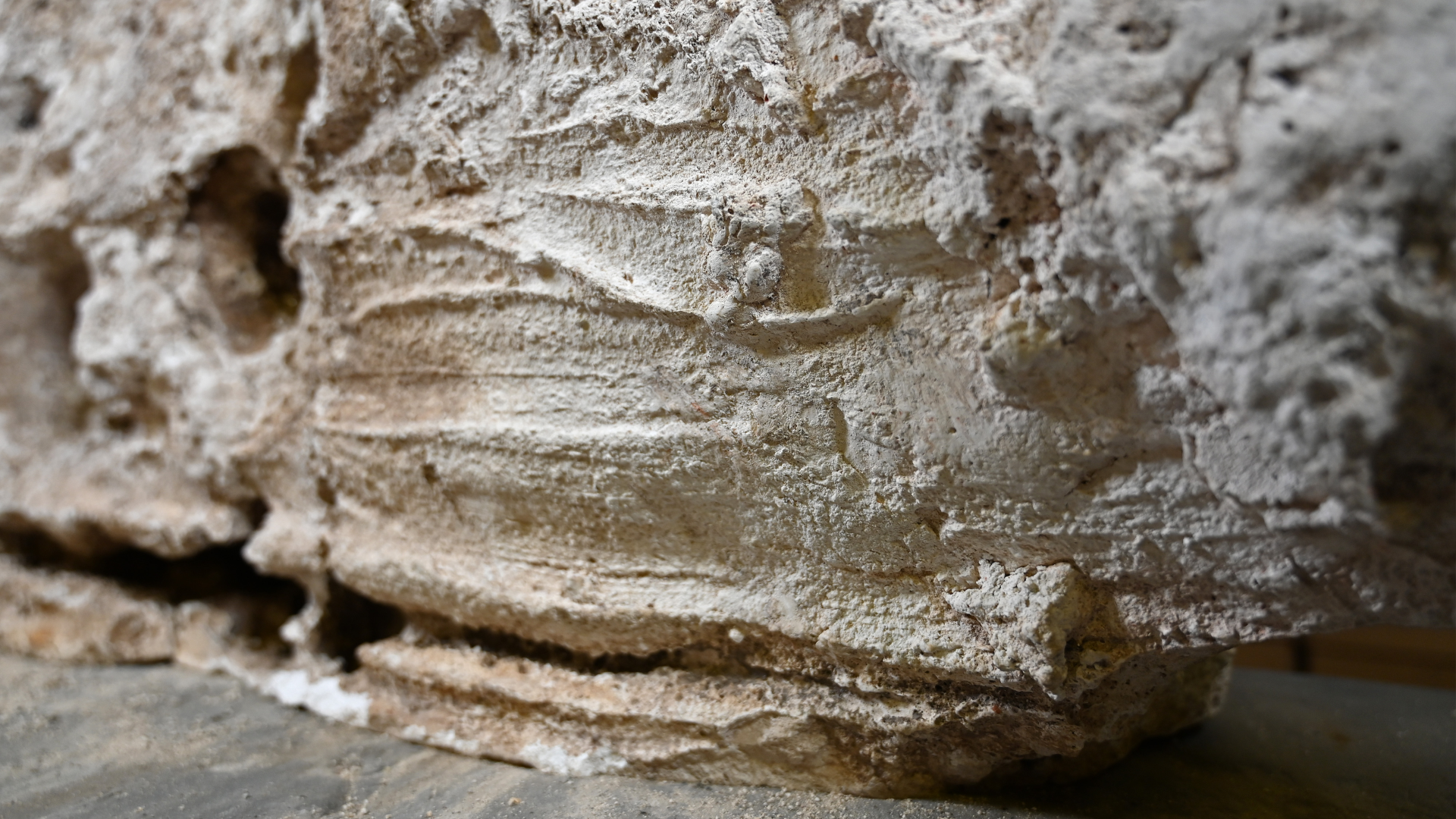Baby Panda Gets Cozy in New Home

Earlier this month, the San Diego Zoo's adorable giant panda cub Xiao Liwu made his debut in a habitat on view to the public. Keepers said this week that the baby bear is getting comfortable in his new home, climbing branches and taking naps in the sun.
"Since the five-month-old panda cub has gone on exhibit, there have been some new adventures for him, such as climbing trees and exploring the hay-lined moat and shallow pond," zoo officials said in a statement.
Though a confident climber, the charismatic cub occasionally tumbles, but that's normal for his age, keepers said.
The keepers routinely check the cub's health and development as he has grown from about the size of a stick of butter as a newborn to a roly-poly bear weighing some 14 pounds (6.3 kilograms) last month. Xiao Liwu has been developing well, sprouting baby teeth and crawling and walking right on time. During his many checkups the bear has delighted with his antics, including his toddler-stage fidgeting, which made the Dec. 13 checkup tricky. "It might be the terrible toddler stage," Tracy Clippinger, a veterinarian at the zoo, said in a video at the time, "but it's great to see because he's becoming his own little panda."
Earlier that month, the little guy dozed off during his exam, though staff were able to get a good look at the cub before his nap.
Xiao Liwu, whose name means "Little Gift," was the sixth cub born to the zoo's panda mom Bai Yun. All the San Diego Zoo giant pandas are on a research loan from China, the only place where the species still exists in the wild. Four of Xiao Liwu's siblings have already been moved out of California to join the Chinese panda conservation and breeding program.
Captive breeding is an important way to study and conserve the endangered species, as just 1,600 giant pandas are thought to be left in the wild. In addition to habitat loss from human activities and low reproductive rates, giant pandas' survival is also threatened by climate change. A study released in the journal Nature Climate Change last year found that global warming could wipe out much of the bears' chief food source, bamboo, over the next century.
Get the world’s most fascinating discoveries delivered straight to your inbox.
Follow LiveScience on Twitter @livescience. We're also on Facebook & Google+.



